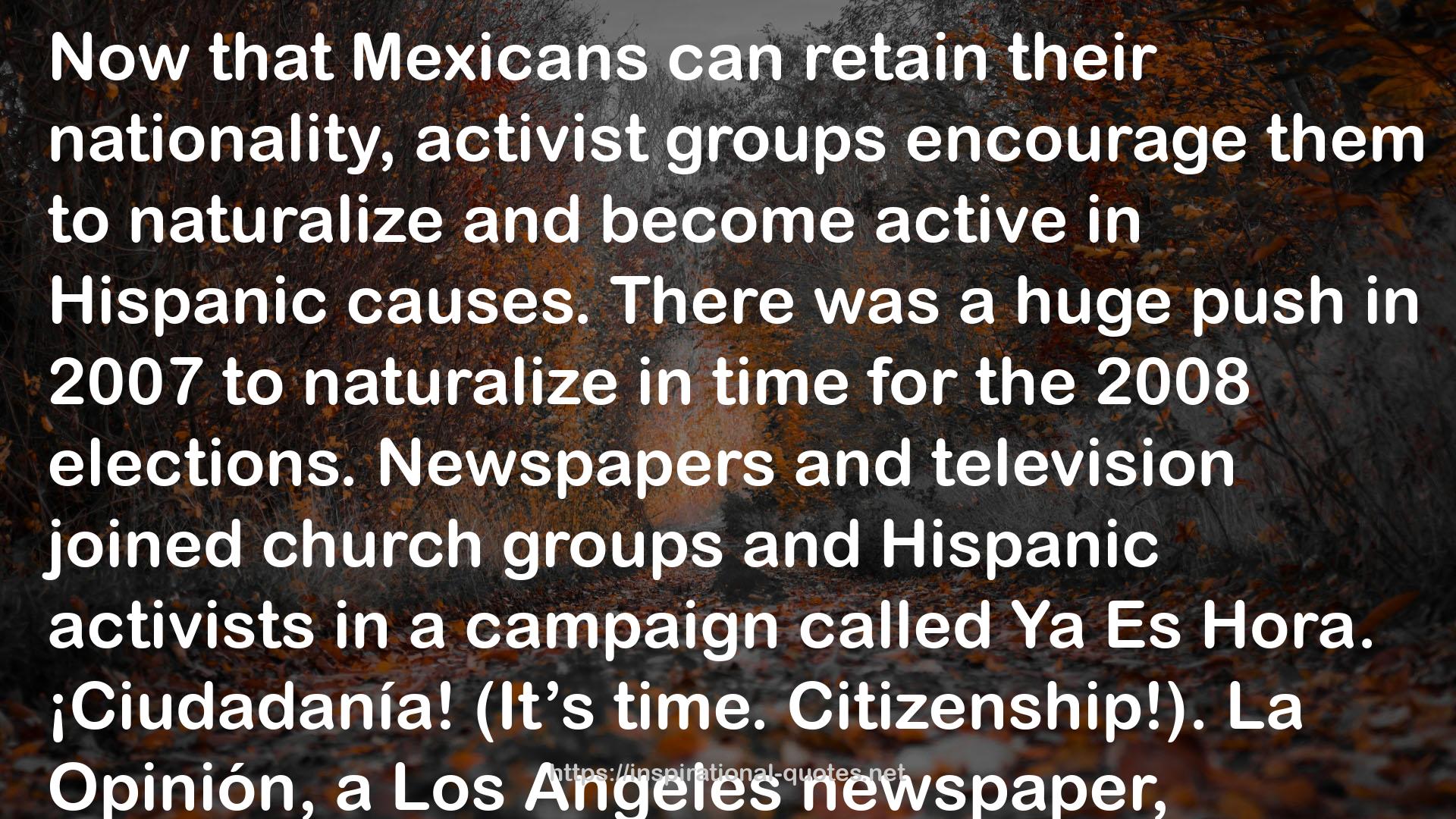" Now that Mexicans can retain their nationality, activist groups encourage them to naturalize and become active in Hispanic causes. There was a huge push in 2007 to naturalize in time for the 2008 elections. Newspapers and television joined church groups and Hispanic activists in a campaign called Ya Es Hora. ¡Ciudadanía! (It’s time. Citizenship!). La Opinión, a Los Angeles newspaper, published full-page advertisements explaining how to apply for citizenship, and the Spanish-language network Univision’s KMEX television station in Los Angeles promoted citizenship workshops on the air. A popular radio personality named Eddie Sotelo ran a call-in contest called “Who Wants to be a Citizen?” in which listeners could win prizes by answering questions from the citizenship exam.
In 2008, Janet Murguia, president of La Raza, was frank about why she was part of a widespread effort to register Hispanics to vote: She wanted them to “help shape the political landscape.”
In California, where 300,000 people—overwhelmingly Hispanic—were naturalized in 2008, whites were expected to be a minority of the electorate in 2026.
Joanuen Llamas, who immigrated legally in 1998, naturalized in 2008 after attending the massive 2006 demonstrations in support of illegal aliens. She said she was inspired by one of the pro-amnesty slogans she had heard: “Today we march, tomorrow we vote.” Hispanics like her are not naturalizing because they love America but because they want to change it. "
― Jared Taylor , White Identity: Racial Consciousness in the 21st Century
